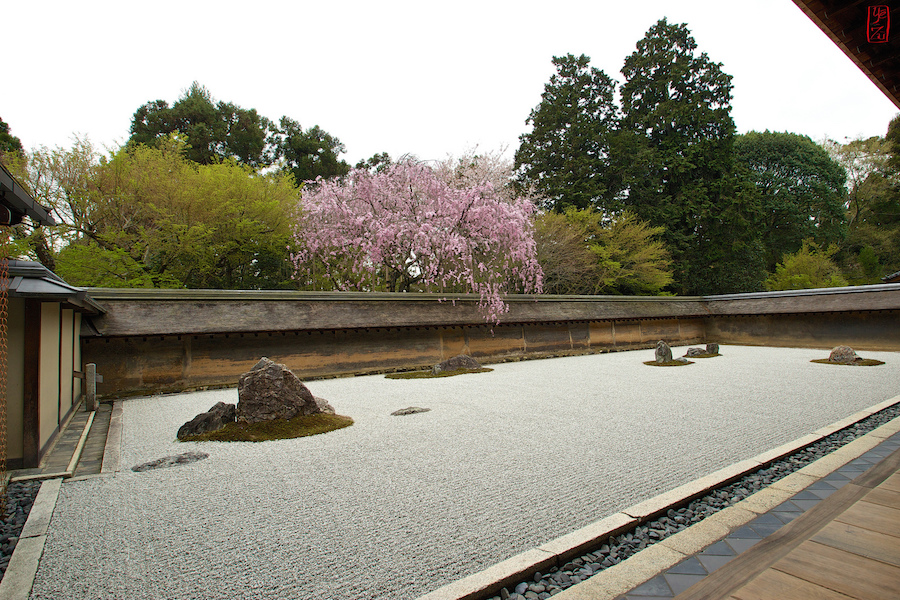How Are Zen Principles Seen In Muromachi Period Garden Design

This type of garden consists of rocks and pebbles rather than vegetation and water and was mainly created on the grounds of temples for encouraging contemplation.
How are zen principles seen in muromachi period garden design. He is arguably the most famous painter in japanese history. See full answer below. There is no field of green grass but sand gravel and sparse scattering of moss and nondescript shrubs.
This type of garden developed in the muromachi period. It isn t a place to find rows of lush trees an ornate gazebo or a pond filled with beautiful fish. Art coming from contemporaneous ming dynasty china as well older chinese art deeply influenced japanese arts especially the emerging local tradition of ink landscape painting.
The garden is a place for meditation trough manual labor. During the muromachi period 1338 1568 due mainly to the influence of zen buddhism a new style of garden arose that was not intended to be entered physically. Classical zen gardens were created at temples of zen buddhism in kyoto during the muromachi period.
Originated in japan the zen rock garden defies the definition of a garden in almost every conventional sense. The contemplation or meditation garden was a spiritual sanctuary a three dimensional landscape art designed to be viewed like a painting from a seated position in a room or on the. He is most famous however for transforming chinese styles into his own stylistic language.
Zen principles are seen in muromachi period garden design because they emphasized the simple and the natural. We will see the detail of two types of them below. The ryōanji garden is the one of the most famous examples of a rock garden a form which developed during the moromachi period 1392 1573 with the efflorescence of zen buddhism in medieval japan.
Muromachi period zen monk ink on paper japan kanga sesshu traveled to ming dynasty china to study chinese painting at its source. They were intended to imitate the intimate essence of nature not its actual appearance and to serve an aid to meditation about the true meaning of life. The zen dry garden of the ryoanji temple is kyoto is celebrated for its.










